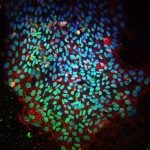Link to Pubmed [PMID] – 34428933
Link to DOI – 10.1089/ars.2020.8242
Antioxid Redox Signal 2022 07; 37(1-3): 208-228
Significance: Reactive species have been classically considered causative of age-related degenerative processes, but the scenario appears considerably more complex and to some extent counterintuitive than originally anticipated. The impact of reactive species in precocious aging syndromes is revealing new clues to understand and perhaps challenge the resulting degenerative processes. Recent Advances: Our understanding of reactive species has considerably evolved, including their hormetic effect (beneficial at a certain level, harmful beyond this level), the occurrence of diverse hormetic peaks in different cell types and organisms, and the extended type of reactive species that are relevant in biological processes. Our understanding of the impact of reactive species has also expanded from the dichotomic damaging/signaling role to modulation of gene expression. Critical Issues: These new concepts are affecting the study of aging and diseases where aging is greatly accelerated. We discuss how notions arising from the study of the underlying mechanisms of a progeroid disease, Cockayne syndrome, represent a paradigm shift that may shed a new light in understanding the role of reactive species in age-related degenerative processes. Future Issues: Future investigations urge to explore established and emerging notions to elucidate the multiple contributions of reactive species in degenerative processes linked to pathophysiological aging and their possible amelioration. Antioxid. Redox Signal. 37, 208-228.



